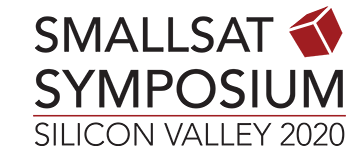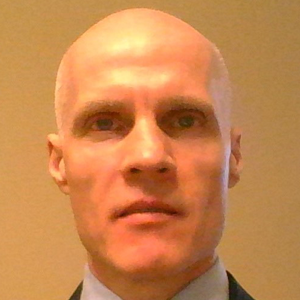

Developing a new launch vehicle? Creating a new satellite propulsion system? Deploying a smallsat constellation? Chances are you will need to understand the complex U.S. and international regulatory regimes that underlie the space industry. Please join our panel of experts, comprised of current and former government regulators and experienced legal practitioners, as they take a hypothetical smallsat company and walk through common regulatory issues and relevant licensing processes, and examine the future regulatory environment for smallsat and other space companies.
 Dr. Josef Koller
Dr. Josef Koller
Dr. Josef Koller is a Systems Director for the Center for Space Policy and Strategy, serving as a senior analyst and team leader on topics that cut across policy, technology, and economics. Prior to joining Aerospace, Dr. Koller served as a Senior Advisor to the Office of the Secretary of Defense for Space Policy where he directly supported key national and international strategy efforts for space-related U.S. Government and DoD policy matters including commercial remote sensing, space traffic management, and related congressional affairs. Prior to that assignment, Dr. Koller managed and co-lead over 40 scientists in the “Space Science and Applications Group” at Los Alamos National Laboratory. Dr. Koller also established and led the Los Alamos Space Weather Summer School to promote graduate student research and outreach at the Laboratory.
Dr. Koller has over 17 years of experience with global security and space science programs. He has authored over 50 peer-reviewed scientific publications with 700 citations. Dr. Koller has a Ph.D. in Astrophysics from Rice University.
 Brooks Cressman
Brooks Cressman
Brooks Cressman is the senior advisor at NOAA’s Commerce Remote Sensing Regulatory Affairs (CRSRA) office. In this role, he provides the Licensing, Compliance, and Policy officers with technical and regulatory expertise and represents the office at various forums. His remote sensing areas of focus are cybersecurity, SAR, and persistent imaging. Mr. Cressman is a senior project engineer at the Aerospace Corporation.
Mr. Cressman has a strong background in systems engineering and wireless/wireline data communications with an emphasis on radar systems, satellite communications engineering, and radio and optical spectrum management. He has worked in the satellite field for over two decades including defending US satellite spectrum policy positions at World Radio Conferences. He joined Aerospace in 2017.
Mr. Cressman began his career working on USAF Airborne Electronic Warfare (AEW) systems at Westinghouse Electronic Systems Group in Maryland where he completed systems engineering assignments on both airborne jammer and airborne radar programs. He oversaw the development of a telemetered instrumentation system and used it to support 9 months of life-fire field testing. After this he began working in the satellite communications field, developing user terminals for a Mobile Satellite program. He guided hardware development and after I&T successfully accomplished US, Canadian, and Australian regulatory certification. He co-developed and shares a patent for, a cellular/ satellite interoperability technique. At program completion, he began work for American Mobile Satellite Corporation (AMSC) overseeing deployments of a satellite data service.
After receiving his MBA, Mr. Cressman moved into Product Management and took assignments in overseeing data communications product and service lines at AMSC, Orbcomm, and Sprint. At an Orbcomm subsidiary, he worked to develop an in-cab messaging product, while at Sprint he specialized in new feature development on the team responsible for nearly $1 Billion in high-speed data services.
After two years Mr. Cressman was invited to join start-up Vistar Datacom, where he took on operational assignments managing their terrestrial and satellite network. In 2004 he went to work for ITT where he employed his satellite communications analysis skills toward Radio and Optical Spectrum Management. He spent 12 years supporting DoD satellite spectrum policy positions in the US rulemaking process and on the US delegation to the International Telecommunication Union’s (ITU) World Radio Conferences (WRC) in 2007 and 2012. After WRC-2012, he spent another 4 years with Exelis/Harris managing a team of spectrum engineers providing regulatory guidance to DoD program offices.
Mr. Cressman earned a bachelor’s degree in Electrical and Computer Engineering in the New York University System and an MBA in general management from the University of Maryland.
 Tony Lin
Tony Lin
Tony Lin works with both new and established satellite and communications companies, understanding their varying legal and business needs.
He has assisted a number of cutting-edge small satellite entrepreneurs in obtaining spectrum licenses and routinely advises such companies on regulatory strategies designed to advance business objectives cost-effectively. He has over a decade of experience representing more traditional satellite companies providing fixed-satellite service, broadcasting-satellite service, and mobile-satellite service.
He advises companies on policy and regulatory matters before U.S. federal agencies and international organizations, including the Federal Communications Commission (FCC), the National Oceanic and Atmospheric Administration (NOAA), the National Telecommunications and Information Administration (NTIA), and the International Telecommunication Union (ITU). Tony has been appointed to the NOAA Advisory Committee on Commercial Remote Sensing (ACCRES), which advises NOAA on the regulation of commercial satellites conducting imaging operations in space.
Tony has challenged U.S. regulatory decisions before federal appellate courts, including the United States Court of Appeals for the D.C. Circuit, the United States Court of Appeals for the Third Circuit, and the Supreme Court of the United States.
Tony holds a Ph.D. in economics and, prior to entering the practice of law, taught economics at Southern Illinois University.
 Chuen Chern Loo
Chuen Chern Loo
Chuen Chern Loo graduated from the National University of Singapore with an Honours degree in engineering, the Nanyang Technological University with a Masters of Science in Digital Communications, and the University of Bradford with a Master of Business Administration. He has worked for more than 20 years in the space industry, including working with satellite operators and manufacturers, before moving to Geneva to work in the space services department in ITU, where he is currently the Head of Space Publication and Registration Division, responsible for the registrations and publication of all satellite network filings as well as the maintenance of the Master Register.
 Stephen F. Propst
Stephen F. Propst
Stephen helps clients in navigating complex issues under U.S. export control and economic sanctions regulations. He brings industry sector knowledge and a commitment to practical, business-focused solutions to his client relationships.
He is a recognized thought leader on economic sanctions issues, and he has a wealth of experience advising clients regarding a full range of regulatory issues under the International Traffic in Arms Regulations (ITAR), the Export Administration Regulations (EAR), and the sanctions regulations administered by the Treasury Department’s Office of Foreign Assets Control (OFAC). He has developed and implemented trade compliance programs, drafted Technical Assistance Agreements and export license applications, prepared commodity jurisdiction and classification requests, conducted internal compliance reviews, and drafted voluntary disclosures.
Stephen has particular strength in advising telecommunications industry clients, including satellite manufacturers and operators, network equipment manufacturers, and telecommunications service providers. He also works extensively with clients in the areas of aircraft, automotive, software development, chemicals, medical products, and higher education.